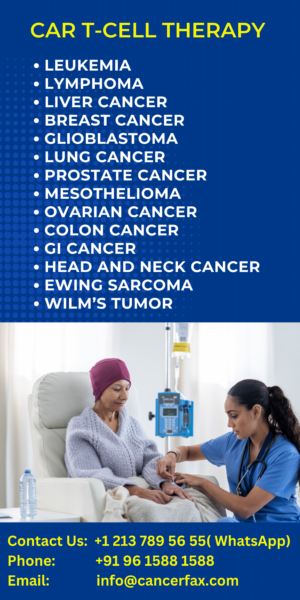Bevacizumab
Introduction:
Within the field of cancer treatment, ongoing medical progress consistently challenges limitations, providing optimism for both patients and healthcare professionals. One of the most significant advancements in cancer treatment is Bevacizumab, a monoclonal antibody that has completely transformed the field. Bevacizumab has become a pivotal component in the battle against diverse cancers due to its exceptional effectiveness and extensive range of applications. This article provides an in-depth analysis of Bevacizumab, including its mechanism of action, therapeutic applications, clinical results, and its impact on the ongoing development of cancer treatment.
Understanding Bevacizumab:
Bevacizumab, also referred to as Avastin, is classified as a monoclonal antibody drug. The U.S. Food and Drug Administration (FDA) granted its initial approval to Bevacizumab in 2004, a pharmaceutical compound developed by Genentech, a division of Roche. Its mechanism of action involves the inhibition of vascular endothelial growth factor (VEGF), a crucial protein involved in angiogenesis, the process of new blood vessel formation to support tumor growth. Bevacizumab inhibits the proliferation of blood vessels in tumors by specifically targeting VEGF, resulting in the deprivation of essential nutrients and oxygen required for their optimal development.
Therapeutic Indications:
Bevacizumab has received regulatory approval for the therapeutic management of several malignancies at varying stages of development. The indications of this treatment encompass a range of malignancies, including colorectal cancer, lung cancer, breast cancer, glioblastoma (a form of brain cancer), kidney cancer, ovarian cancer, cervical cancer, and other variations. Bevacizumab is frequently employed in conjunction with chemotherapy regimens as an initial therapeutic approach for colorectal cancer, resulting in a notable extension of progression-free survival and enhancement of overall prognoses. Likewise, the integration of this approach into treatment protocols for advanced lung cancer has exhibited significant effectiveness, resulting in extended patient longevity and improved quality of life.
Clinical Efficacy and Outcomes:
Multiple clinical trials and real-world research have confirmed the effectiveness of Bevacizumab in treating different types of cancer. The addition of Bevacizumab to standard chemotherapy regimens in metastatic colorectal cancer has been shown to significantly improve overall survival and progression-free survival, as evidenced by pivotal trials such as the AVF2107g and AVF2182g investigations. In the context of non-small cell lung cancer, notable clinical trials such as ECOG 4599 have demonstrated the substantial advantages of utilizing Bevacizumab in conjunction with chemotherapy, resulting in its integration into established treatment protocols.
Furthermore, Bevacizumab has demonstrated encouraging outcomes in the treatment of recurrent glioblastoma, a condition for which conventional therapeutic approaches have traditionally been restricted. The usefulness of Bevacizumab in extending progression-free survival and enhancing radiographic response rates in patients with this aggressive brain tumor has been highlighted by clinical trials such as AVAglio and RTOG 0825.
Safety Profile and Adverse Events:
Although Bevacizumab has demonstrated effectiveness, it is not devoid of adverse effects. Hypertension, proteinuria, bleeding, thrombosis, gastrointestinal perforation, and decreased wound healing are frequently observed as adverse effects in relation to its utilization. Although these unfavorable occurrences can be effectively controlled by appropriate surveillance and action, they emphasize the significance of diligent patient care and strong cooperation among healthcare professionals.
In addition, there have been concerns expressed about the possibility of Bevacizumab facilitating tumor invasion and metastasis, especially in specific forms of cancer. Nevertheless, thorough preclinical and clinical investigations have given confidence that the advantages of Bevacizumab surpass these possible hazards in the majority of situations. However, current research efforts are still revealing the intricate connections between Bevacizumab and tumor biology, thereby improving its therapeutic effectiveness and safety.
The Evolving Landscape of Cancer Treatment:
The introduction of Bevacizumab has caused a fundamental change in the way cancer is treated. The success of this intervention has served as a catalyst for the advancement of innovative targeted treatments and immunotherapies that seek to disrupt crucial pathways implicated in the growth and progression of tumors. Furthermore, the idea of combination therapy, which involves combining Bevacizumab with chemotherapy, targeted medicines, or immunotherapies, has become increasingly popular. This approach provides combined advantages and tailored treatment plans for patients with various forms of cancer.
In the future, continuing research efforts are focused on investigating new uses of Bevacizumab, such as its application in neoadjuvant and adjuvant contexts, as well as its combination with developing therapy methods such immune checkpoint inhibitors and adoptive cell treatments. In addition, ongoing endeavors are being made to uncover biomarkers that can predict the response to Bevacizumab. The objective is to enhance patient selection and improve treatment outcomes.
Conclusion:
Bevacizumab serves as an exemplification of the profound impact that targeted therapies can have on the field of cancer treatment. The capacity to hinder the growth of new blood vessels in tumors and boost the effectiveness of traditional treatments has fundamentally transformed treatment strategies and enhanced results for numerous patients globally. As the body of research and clinical knowledge continues to advance, our comprehension of Bevacizumab’s significance in cancer treatment remains a promising prospect in the continued pursuit of enhanced and tailored interventions for this tough ailment.
- Comments Closed
- March 31st, 2024









Privacy Overview